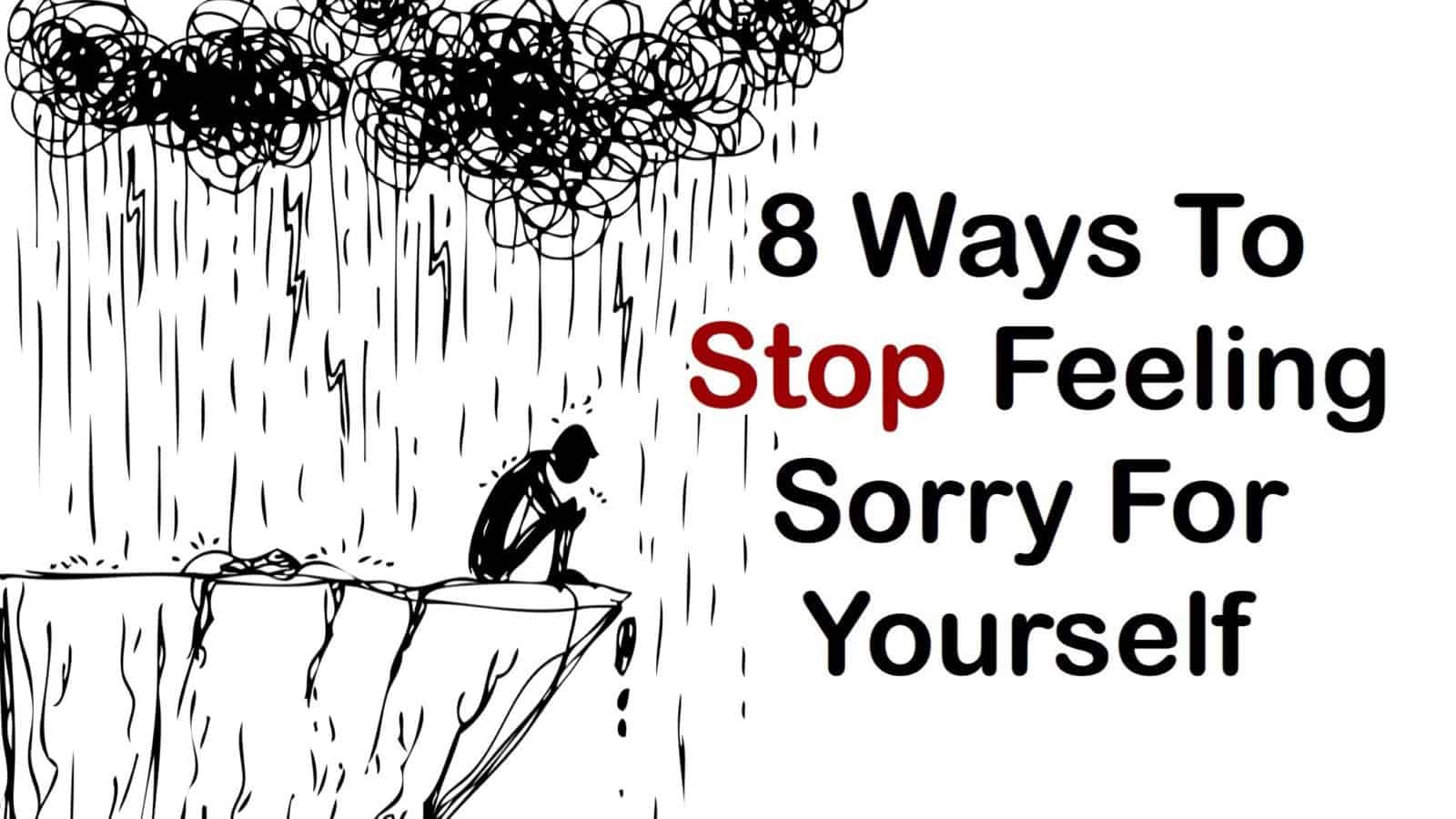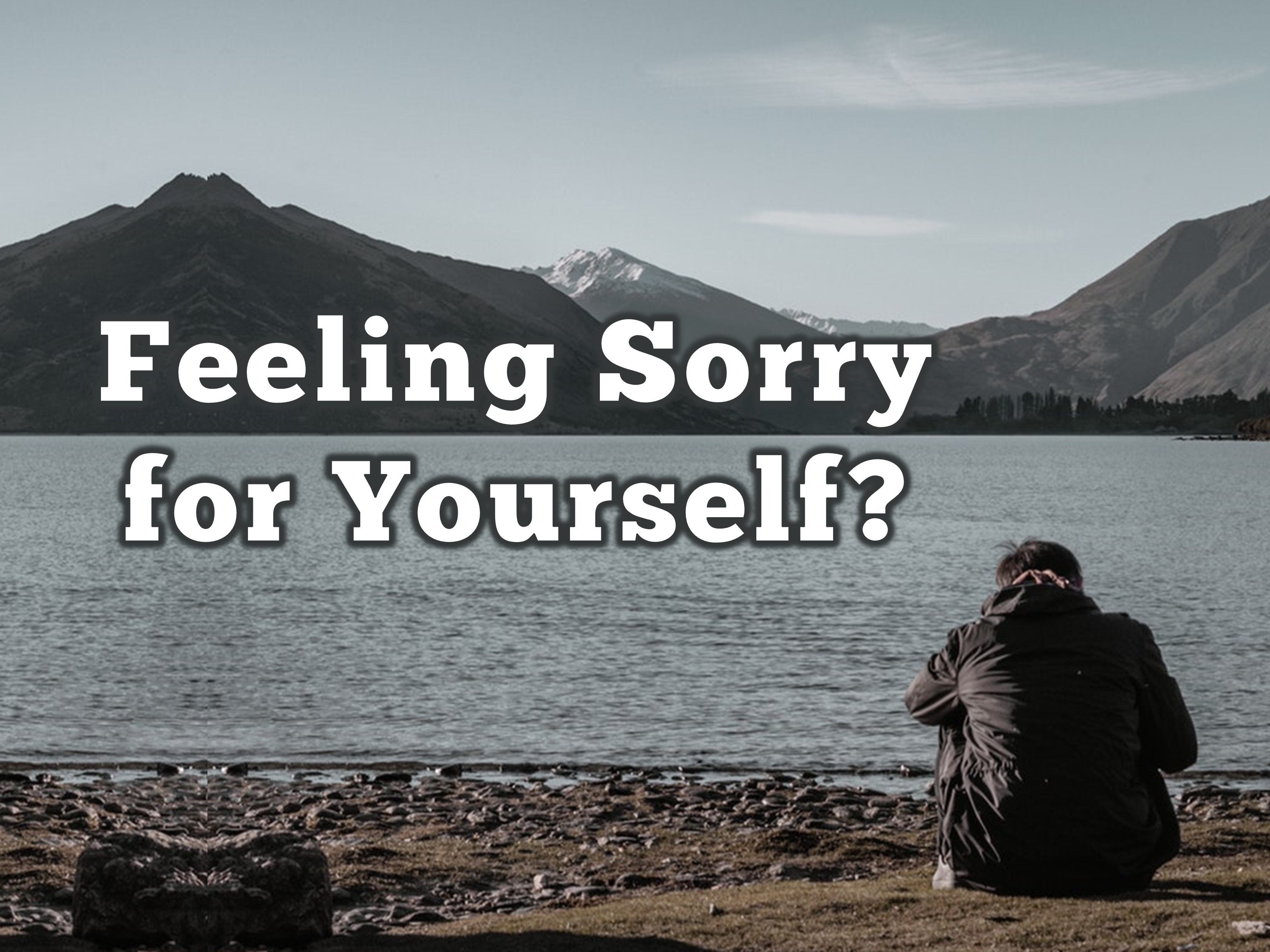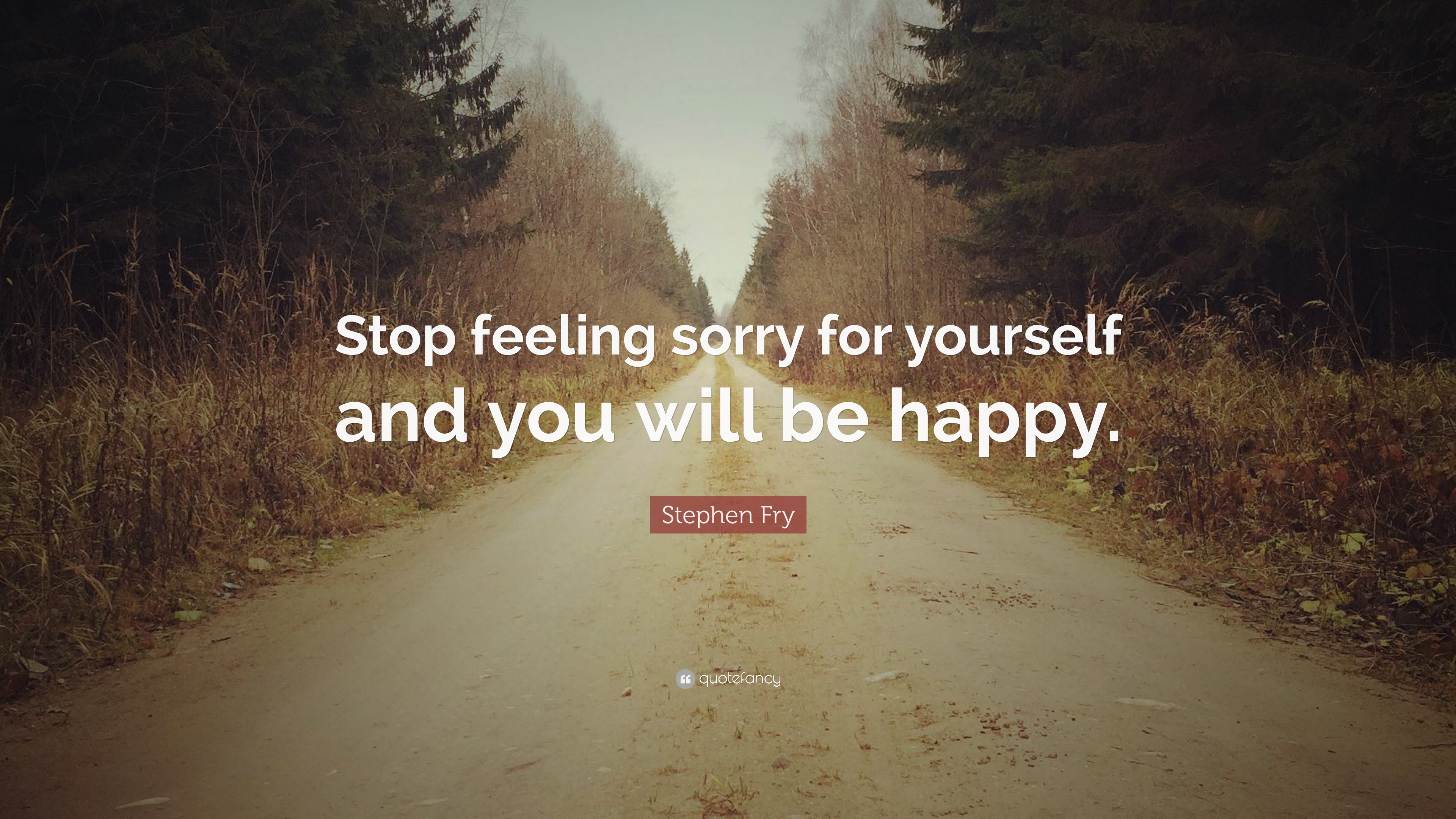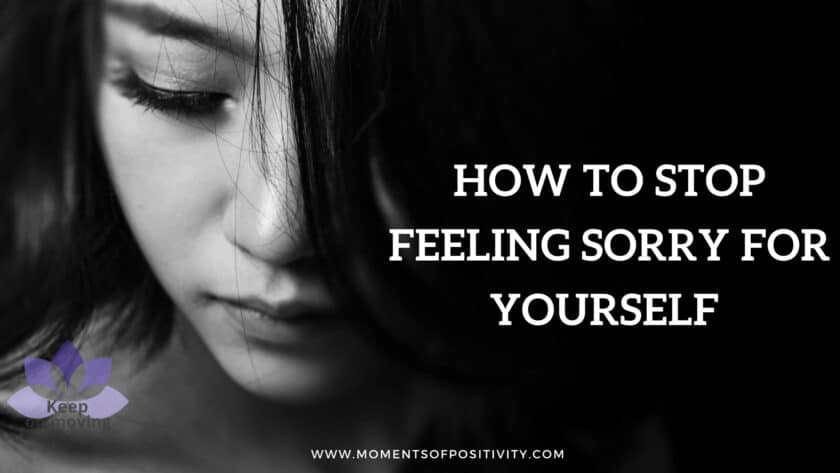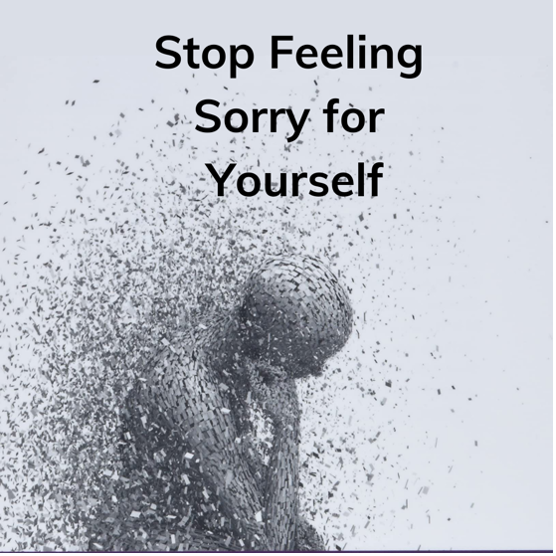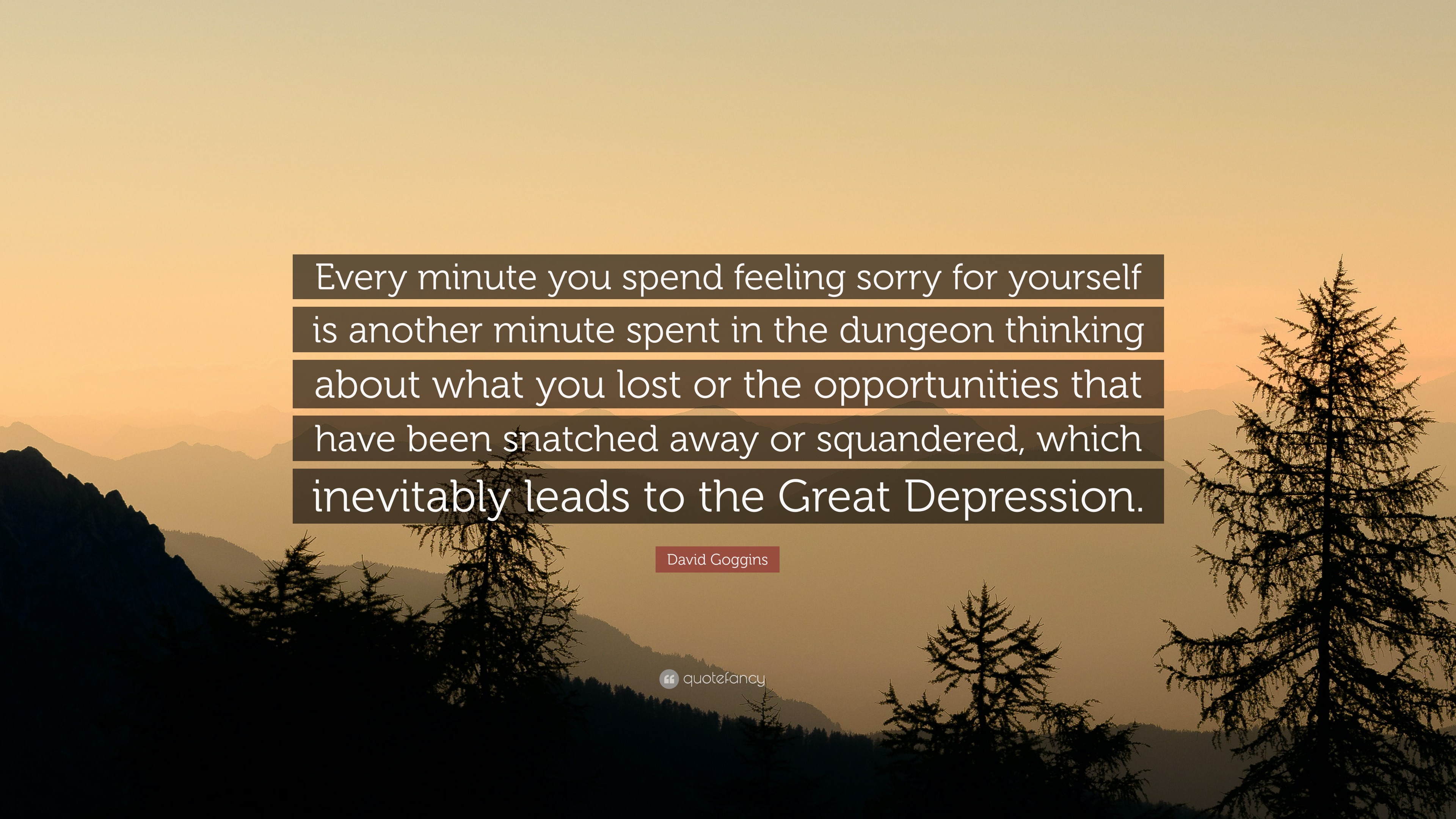What Is Feeling Sorry For Yourself

In moments of distress, the line between acknowledging genuine hardship and succumbing to self-pity can become blurred. Understanding this distinction is crucial for mental well-being and effective coping strategies. Prolonged self-pity, characterized by excessive focus on personal suffering and a sense of helplessness, can be detrimental to personal growth and overall quality of life.
This article delves into the intricacies of feeling sorry for oneself, exploring its psychological roots, behavioral manifestations, and potential consequences. It aims to provide clarity on what constitutes self-pity, differentiating it from normal emotional responses to adversity. Furthermore, it examines strategies for navigating challenging times without falling into the trap of unproductive self-pity, and emphasizes the importance of seeking professional help when necessary.
Defining Self-Pity: Beyond Simple Sadness
Self-pity is more than just feeling sad or disappointed. It's a persistent, often exaggerated, focus on one's own misfortunes, accompanied by feelings of helplessness and a belief that one is uniquely unlucky. The American Psychological Association (APA) does not explicitly define "self-pity" as a formal psychological term.
However, behaviors associated with self-pity often overlap with symptoms of other conditions like depression or anxiety. According to the National Institute of Mental Health (NIMH), these conditions can involve persistent feelings of sadness, hopelessness, and a negative view of oneself and the world.
Characteristics of Self-Pity
Several key characteristics distinguish self-pity from healthy emotional processing. One prominent sign is dwelling on negative experiences and replaying them repeatedly in one's mind.
Another sign involves exaggerating the severity of the situation. Blaming others for one's problems and refusing to take responsibility for one's own actions are also signs. Seeking excessive attention and sympathy from others, and feeling entitled to special treatment are additional manifestations of self-pity.
The Psychological Roots
Self-pity often stems from underlying psychological vulnerabilities. Low self-esteem, a history of trauma, or a lack of effective coping mechanisms can make individuals more susceptible to feeling sorry for themselves. Individuals with a pessimistic outlook or a tendency to catastrophize events are also at higher risk.
Attachment theory also plays a role; those with insecure attachment styles may seek reassurance through self-pitying behaviors. According to research published in the *Journal of Personality and Social Psychology*, individuals with insecure attachment are more likely to engage in emotional regulation strategies that involve seeking external validation, which can manifest as self-pity.
Consequences of Prolonged Self-Pity
While occasional moments of feeling sorry for oneself are normal, prolonged self-pity can have serious consequences. It can lead to social isolation, as others may become tired of the negativity and lack of responsibility. Self-pity can also hinder personal growth and prevent individuals from taking action to improve their situation.
Furthermore, excessive self-pity can contribute to mental health problems. It can exacerbate symptoms of depression and anxiety, and increase the risk of substance abuse.
"Chronic self-pity can be a significant barrier to recovery and achieving a fulfilling life,"says Dr. Jane Smith, a clinical psychologist specializing in mood disorders.
Navigating Challenges Without Self-Pity
Developing healthy coping strategies is essential for navigating difficult times without succumbing to self-pity. Practicing gratitude, focusing on one's strengths, and setting realistic goals can shift the focus away from negative thoughts. Seeking support from friends, family, or a therapist can provide valuable perspective and encouragement.
It's also important to challenge negative thought patterns. Cognitive Behavioral Therapy (CBT) techniques, such as identifying and reframing negative thoughts, can be highly effective. According to the American Psychological Association (APA), CBT is a widely used and effective therapy for a range of mental health issues, including those related to negative thinking patterns.
Seeking Professional Help
If self-pity is persistent, pervasive, and interfering with daily life, seeking professional help is crucial. A therapist can help individuals identify the underlying causes of their self-pity. They can teach them more effective coping mechanisms and develop a more positive and resilient mindset. The Substance Abuse and Mental Health Services Administration (SAMHSA) offers resources for finding mental health treatment and support.
Ultimately, understanding the difference between acknowledging hardship and wallowing in self-pity is vital for mental well-being. By adopting healthy coping strategies, challenging negative thought patterns, and seeking professional help when needed, individuals can navigate difficult times with greater resilience and build a more fulfilling life.

